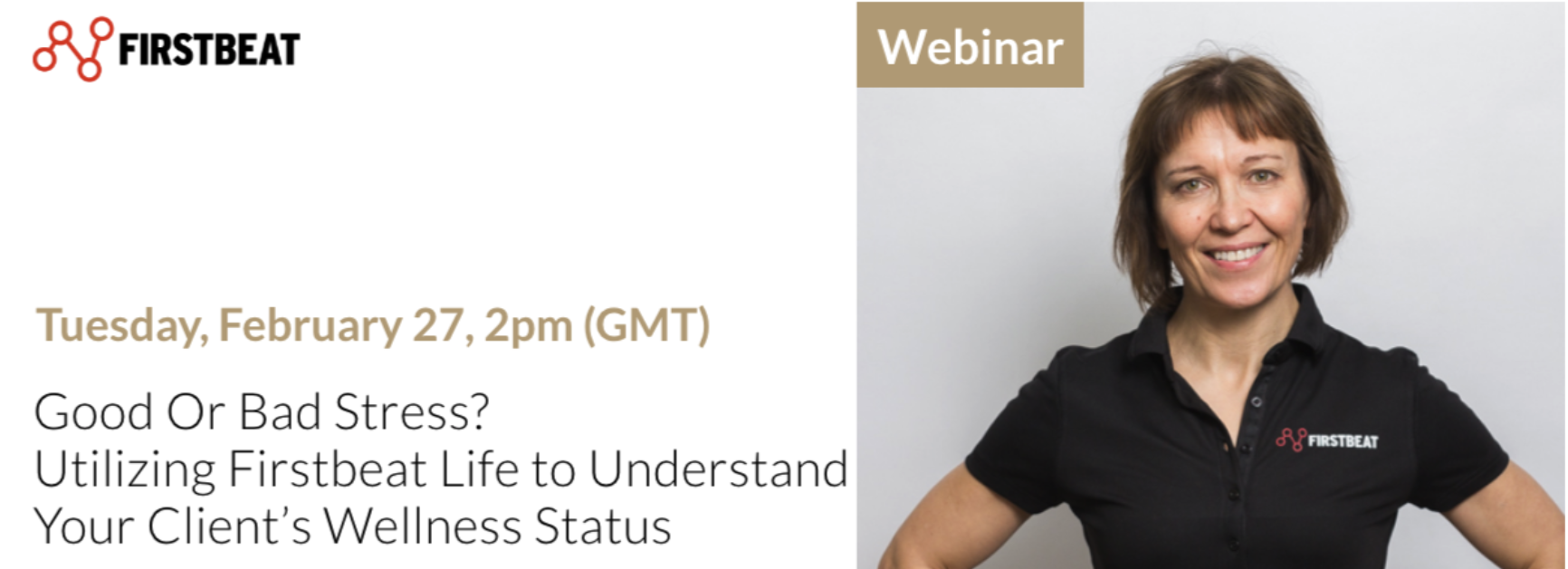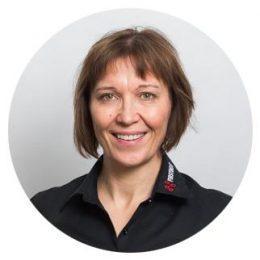Recorded Webinar
Good Or Bad Stress? Utilizing Firstbeat Life to Understand Your Client’s Wellness Status

Learn from practical real-life examples how physiological data can be used to understand your client’s stress-recovery balance and get a better picture of their wellness status.
In this webinar, we will discuss “good” and “bad” stress, highlighting the idea that it’s not stress itself that is typically a problem but the inability to recover from excessive overall load. The challenge is that we become so accustomed to feeling stressed that we no longer notice the problem. This is where accurate data from real life is very helpful, especially when used as part of lifestyle or wellness coaching programs. It can pinpoint areas that are off-balance and help make some adjustments.
Firstbeat’s Master Trainer Tiina Hoffman will introduce the Firstbeat Life method and show how data can illustrate the difference between “good” and “bad” stress. She will share a few interesting cases, from good recovery to signs of possible overload to an example of a burnout case.
In the end, Tiina and our COO Markus Ramstedt will share and discuss Markus’s recent Firstbeat Life result that prompted him to pause and pay attention.
Whether you are a wellness or corporate coach, fitness professional or occupational health provider, this webinar helps you see how you can benefit from physiological measurements to deliver impactful services to your clients.
If you liked this article, you should subscribe to our newsletter.




